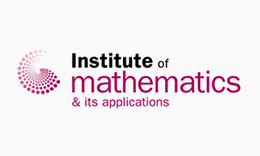Pure Mathematics / Statistics Code GGC3 Attend an Open Day Attend an Open Day
Apply NowKey Facts
GGC3-
UCAS Tariff
120 - 104
-
Course duration
3 years
Available for September start 2026
Further details on entry requirements
Apply NowOn the Pure Mathematics and Statistics degree at Aberystwyth University you will study mathematical concepts in depth and gain a firm understanding of the techniques of collection, classification, organisation, analysis and interpretation of data. You will develop skills in mathematical analysis and statistical modelling to evaluate hypotheses and analyse real-world problems. Suitably qualified statisticians are needed to process the enormous quantities of data generated by modern society, evaluate patterns within the data, and use those to inform decision-making and strategy planning.
The first two years of the Pure Mathematics and Statistics course give you a broad introduction to important areas of mathematics, including abstract algebra, statistical estimation and mathematical analysis. You will be able to specialise in your final year and take advantage of our expertise by choosing from a wide range of optional modules based on your own interests.
In studying Pure Mathematics and Statistics you will develop clear analytical thought processes, problem-solving abilities and the capacity for logical argument. Such skills are highly transferable and attractive to employers in a range of sectors. Graduates of Pure Mathematics and Statistics make significant contributions to vital areas such as science, engineering, technology and finance, and find employment in roles where numerical and data analysis is key.
This degree is accredited by the IMA (Institute for Mathematics and its Applications), the UK's learned and professional society for mathematics, directly contributing to your recognition as a Chartered Mathematician.
Course Overview
Modules September start - 2026
Please note: The modules listed below are those currently intended for delivery during the next academic year and may be subject to change. They are included here to give an indication of how the course is structured.
| Module Name | Module Code | Credit Value |
|---|---|---|
| Algebra * | MA10510 | 10 |
| Calculus * | MP10610 | 10 |
| Career Planning and Mathematical Skills Development * | MA10720 | 20 |
| Coordinate and Vector Geometry * | MA10110 | 10 |
| Differential Equations * | MA11210 | 10 |
| Further Algebra and Calculus * | MP11010 | 10 |
| Mathematical Analysis * | MA11110 | 10 |
| Probability * | MA10310 | 10 |
| Statistics * | MA11310 | 10 |
| Module Name | Module Code | Credit Value |
|---|---|---|
| Mathematical Physics * | PM26020 | 20 |
| Applied Statistics | MA26620 | 20 |
| Complex Analysis | MA21510 | 10 |
| Distributions and Estimation | MA26010 | 10 |
| Introduction to Abstract Algebra | MA20310 | 10 |
| Introduction to Numerical Analysis and its applications * | MA25220 | 20 |
| Linear Algebra * | MA21410 | 10 |
| Real Analysis | MA20110 | 10 |
Options
| Module Name | Module Code | Credit Value |
|---|---|---|
| Advanced Dynamics | MA25710 | 10 |
| Hydrodynamics 1 | MA25610 | 10 |
| Module Name | Module Code | Credit Value |
|---|
Options
| Module Name | Module Code | Credit Value |
|---|---|---|
| Graphs and Networks | MA32410 | 10 |
| Group Theory | MA30110 | 10 |
| Norms and Differential Equations | MA30210 | 10 |
| Probability and Stochastic Processes | MA37410 | 10 |
| Statistical Inference and Linear Models | MA36820 | 20 |
| Topics in Biological Statistics | MA35210 | 10 |
* Also available partially or entirely through the medium of Welsh
Careers
Teaching & Learning
Typical Entry Requirements
UCAS Tariff 120 - 104
A Levels BBB-BCC to include B in Mathematics
GCSE requirements (minimum grade C/4):
English or Welsh and Mathematics
BTEC National Diploma:
DDM-DMM with B in A level Mathematics
International Baccalaureate:
30-28 with 5 points in Mathematics at Higher Level
European Baccalaureate:
75%-65% overall with 7 in Mathematics
English Language Requirements:
See our Undergraduate English Language Requirements for this course. Pre-sessional English Programmes are also available for students who do not meet our English Language Requirements.
Country Specific Entry Requirements:
International students whose qualification is not listed on this page, can check our Country Specific Entry Requirements for further information.
The University welcomes undergraduate applications from students studying the Access to Higher Education Diploma or T-level qualifications, provided that relevant subject content and learning outcomes are met. We are not able to accept Access to Higher Education Diplomas or T-levels as a general qualification for every undergraduate degree course.
Our inclusive admissions policy values breadth as well as depth of study. Applicants are selected on their own individual merits and offers can vary. If you would like to check the eligibility of your qualifications before submitting an application, please contact the Undergraduate Admissions Office for advice and guidance.

